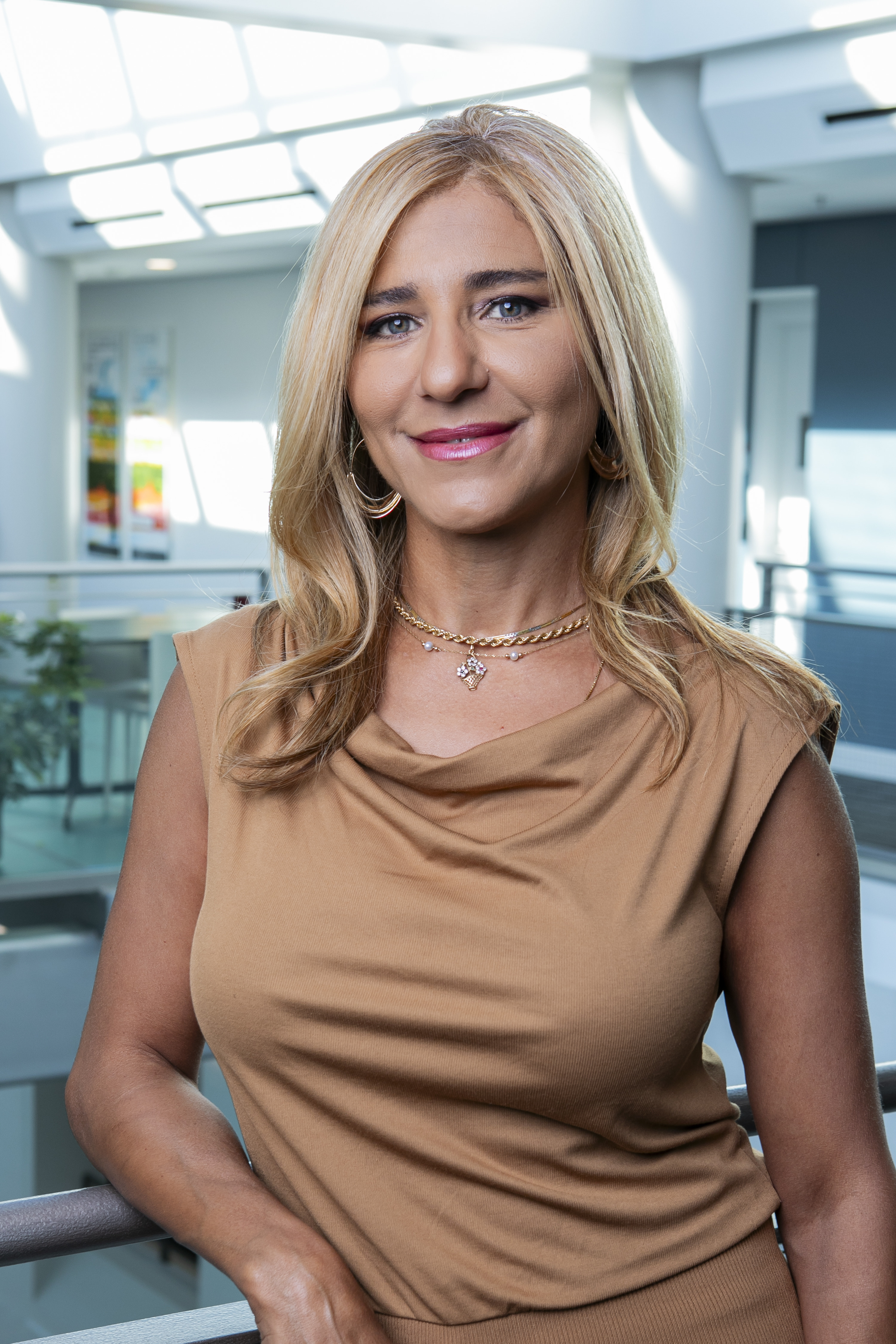Faculty Spotlight: Nevine Abraham
Nevine Abraham, assistant teaching professor and coordinator of Arabic Studies in the Department of Languages, Cultures & Applied Linguistics, specializes in literary-cultural studies and indigeneity in Arab countries.
Tell me about your scholarly work.
My work is positioned at the intersection of literary-cultural studies, indigeneity and the issues of social justice and minoritization in the Arabic-speaking world. I examine minorities in the intellectual, social and political history of the Middle East and North Africa, with a focus on the role of the institutions of power — from imperialism to post-independence nationalism and subsequent regimes — in marginalizing groups, compromising their rights and shaping their sense of citizenship and belonging.
How is your scholarly work adding to the greater field?
My work contributes to the understudied field of Coptic (Copts) studies and the broader understanding of marginalized groups in Arab countries, questioning dominant narratives and expanding the discourse on identity and power. My research positions Copts, as an ethnoreligious community, in Egypt’s social and political history within the asymmetrical state and religious power structures, moving beyond the narrow scope of victimhood and faith. Focusing on emerging voices within the diaspora, my work illuminates how diasporic memory redefines its connection to the homeland, crafting counter-narratives that subvert overlapping hegemonic systems while expanding the understanding of minority groups in relation to the majority and the state. This lens sheds light on the critical role of diaspora activism in challenging conformist and reductionist cultural paradigms.
How did you become interested in this topic?
As a diasporic Egyptian, my cultural heritage has driven my engagement with the underrepresented field of Coptic studies and the broader issues faced by marginalized groups. I did not grow up reading about or seeing this content represented in the media or literary and cultural productions. It was silenced or misrepresented. Exploring the works of Arab writers, particularly diasporic ones, has allowed me to see Arab and minority heritage through perspectives that challenge the narratives I grew up with. Literature and language can be powerful tools for expressing complex ideas and retelling history. They can unveil concepts that society often deems dangerous or taboo, making them a transformative force for change. Examining this topic has also drawn me to explore parallel challenges faced by other marginalized groups in Arab states, as well as the ever-evolving dynamics of forced exile, migration and the ensuing intersection of race and identity in how host countries receive and perceive immigrants.
What are you most excited to accomplish as a faculty member at CMU?
As I integrate research into my teaching, my goal is to cultivate informed dialogue about Arab society, its values and global social justice, while enhancing students’ cross-cultural literacy to navigate the complexities of today’s interconnected world with confidence and compassion. I aim to inspire students to appreciate how diverse Arab countries are, challenge their preconceived notions, consumed by biased media and dominant narratives and critically rethink the definitions of minorities and the processes of marginalization. I aim to empower them to reflect on their roles as active citizens capable of addressing inequities.
I hope to establish collaboration between our Arabic Studies and minor program and other CMU programs and departments, through interdisciplinary co-teaching and research across a wide range of topics. From exploring the rich traditions of Arab art, music, culinary heritage and architecture to the complexities of politics and socio-economic dynamics of the region, the opportunities for meaningful engagement are boundless. Such collaborations have the potential to deepen students' educational experiences, providing them with a richer, more nuanced understanding of the Arab world and its multifaceted contributions to global culture and knowledge.
What are your goals for the next generation of scholars?
I envision the establishment of more dedicated, collaborative groups of scholars focused on studying minority communities within the Arab region, alongside the creation of archives that facilitate research and serve as teaching resources. Creating such initiatives is essential for dispelling pervasive misconceptions about Arab cultures. Additionally, I hope to see educational institutions implement programs and curricula that celebrate Arab heritage and promote the Arabic language. Education serves as a powerful vehicle for enlightening minds, countering anti-Arab sentiments, broadening perspectives, dismantling stereotypes and cultivating an understanding of the intricate social, cultural and historical frameworks, which are sometimes overlooked in educational programs. In today’s widespread misinformation and bias, these efforts are more important than ever.
The Faculty Spotlight series features new and junior faculty at the Dietrich College of Humanities and Social Sciences at Carnegie Mellon University.
